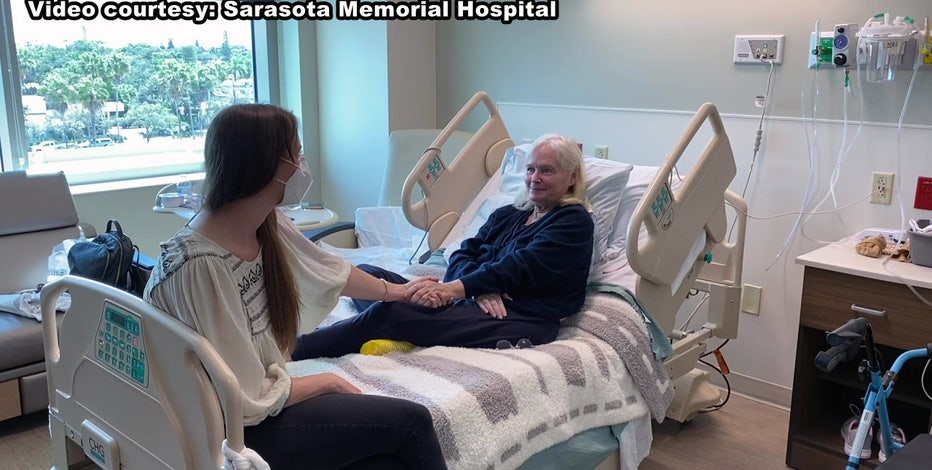Sarasota Memorial Hospital kicks off study in search of better weapons against COVID-19
SARASOTA, Fla. - At Sarasota Memorial Hospital, Dr. Kirk Voelker and others have worked to treat COVID-19.
"Basically right now most of the drugs we have for COVID address the viral load, trying to keep the virus in your system down as low as possible," he said. "Despite optimal critical care management, we need something better."
Voelker says about a week after being infected with COVID-19, some patients experience an inflammatory response; a telltale sign of that response is a patient needing supplemental oxygen.
"Once that inflammatory response starts getting out of hand, it spreads like wildfire throughout your body, that’s what starts the end-organ damage," Voelker explained.
Voelker says inflammation and lack of oxygen can cause respiratory and kidney failure. Blood clots could occur, and in some cases, death.
Featured
Sarasota hospital's longest-tenured COVID-19 patient heads home
A 69-year-old woman is out of a coma and finally heading home after three months at Sarasota Memorial Hospital, where she stayed longer than any other COVID-19 patient. "It’s real and it can happen to anybody," she warns.
Sarasota Memorial Hospital hopes to lead the way in stopping the inflammatory response with a new drug trial studying the use of anti-CD14 monoclonal antibodies.
Sponsored and funded by the National Institute of Allergy and Infectious Diseases, part of the National Institutes of Health, the randomized, double-blind, placebo-controlled study will enroll between 300 and 350 hospitalized adults over the next several months.
Over the course of four days, half of the patients will receive the IC14 monoclonal antibody, and half will receive a placebo. All participants also will receive standard care, including antiviral therapy with remdesivir.
The main goal of the study is to determine whether treatment with IC14 decreases the time it takes people with COVID-19 to recover to the point that they can be sent home.
Results are expected in early 2022.
"We’ve been searching for the last year, desperately for something to quench this inflammatory response. We are hoping that this drug will quench this inflammatory response, therefore saving lives," said Voelker.
Since, Monday three patients have been enrolled in the study. Dr. Voelker is hopeful the treatment could help COVID and believes it will also help other patients dealing with diseases that have a common inflammatory pathway.
"It may not apply to just COVID; it may advance our knowledge in many other diseases," he added.



